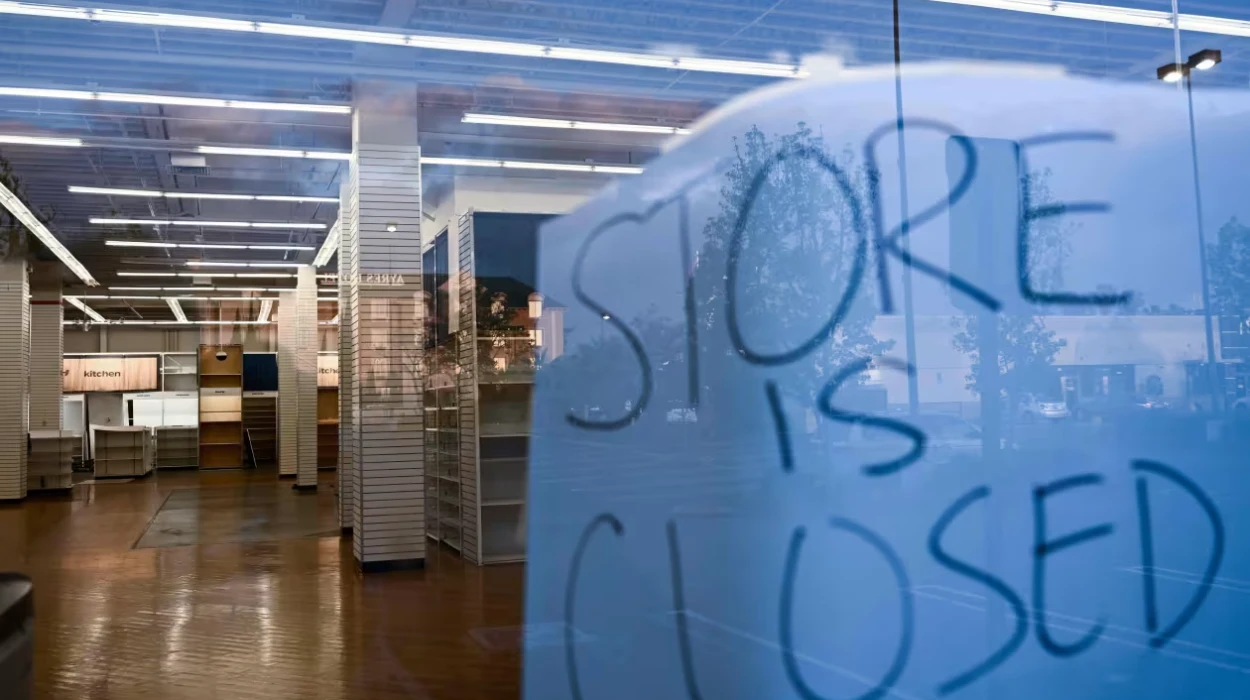London (Parliament Politic Magazine) – The year is on course to witness the highest number of business bankruptcies since the depths of the 2009 financial crisis. Official data for England and Wales reveals a 10% increase in insolvencies over the past year, primarily during the three months leading up to the end of September.
Challenging Times for Businesses as Bankruptcies Surge
Concurrently, there has been a significant surge in companies teetering on the brink of bankruptcy, with a 25% rise in businesses facing “critical financial distress” in the last quarter, as reported by insolvency experts at Begbies Traynor. These businesses are identified by having county court judgments exceeding £5,000 against them, often indicating a looming collapse.
Dean Euden, a wine merchant from Cardiff, has already closed his business, noting that he initially believed the most challenging times were due to COVID, but it turned out that the real hardships came afterward.
“The escalating cost of living crisis left people with reduced disposable income, prompting me to close the shop and transition to an online presence. However, the market lacked the same spending power,” he remarked. “I found myself unable to balance the books, meet my financial obligations to suppliers, or even pay myself. It became evident that the business was no longer sustainable.”
Financial Realities Hit Businesses Amid Rising Interest Rates
According to data compiled by analysts at Red Flag for Begbies Traynor, nearly 38,000 companies are currently grappling with critical financial distress. Julie Palmer, representing Begbies Traynor, attributed this situation to a combination of surging inflation and rising borrowing costs, coupled with a decline in consumer confidence and demand. “The absence of cheap money has left tens of thousands of British companies in a dire financial predicament,” she stated.
Businesses that heavily leveraged themselves with debt at historically low interest rates, relying on government assistance to endure the pandemic, now confront a harsh financial reality as elevated interest rates impact their working capital for the foreseeable future.
The construction sector has experienced the most pronounced surge in companies facing critical distress, with a 46% uptick in just the past three months.
This trend did not come as a surprise to Ceri Lee, the director of Cross Group Building Works in Cardiff. He explained that while his company had enough projects to stay afloat, the increased borrowing and material expenses dissuaded many potential customers from undertaking home improvement investments.
Rising Costs and Uncertainty Impact Businesses and Customers
Mr. Lee also highlighted the volatility in material prices, exemplifying the situation with timber panels used in home extensions. “Last year, these timber panels cost £56 each, but this year, they’re priced at £129 each. There’s a limit to how much we can pass on to the customer because pushing the costs too high could result in a loss of business, ultimately affecting our profits,” he explained.
“Estimating job prices has become a guessing game. We sometimes approach projects with uncertainty; you wake up in the morning, and costs have risen, but you’re hesitant to revise the quote for the customer, fearing that it might cost you the job.”
Support measures implemented during the COVID-19 pandemic, such as furlough, bounce-back loans, and HMRC forbearance, kept corporate insolvency rates low. However, as these supports have waned, and with the simultaneous rise in inflation and interest rates, businesses are grappling with reduced profit margins, and their customers are feeling the pinch.
Read More: HSBC’s Profits Double with Support from High Interest Rates
Business Owners Struggle to Maintain Operations Amidst Mounting Challenges
Betina Skrovo, the proprietor of a bakery with coffee shops in Cardiff and Penarth, described the current business environment as strenuous and precarious.
“During the COVID-19 pandemic, we felt supported, but now we’re faced with the task of repaying all the assistance we received. It’s being extracted from us at a time when we’re grappling with escalating fuel and electricity bills,” she remarked.
“Every challenge feels like a towering mountain, and as you ascend, you find yourself slipping back down. There are moments when I think, ‘I hope the dishwasher doesn’t break,’ ‘I hope the fridge doesn’t give out; it’s that delicate.’ There are times when I can’t even pay myself. If it weren’t for my dedicated team, I might not have been able to persevere.”
Ms. Palmer from Begbies Traynor reported hearing similar accounts from other business directors who are increasingly reaching out to her company for guidance, expressing a sense of having no other recourse.

